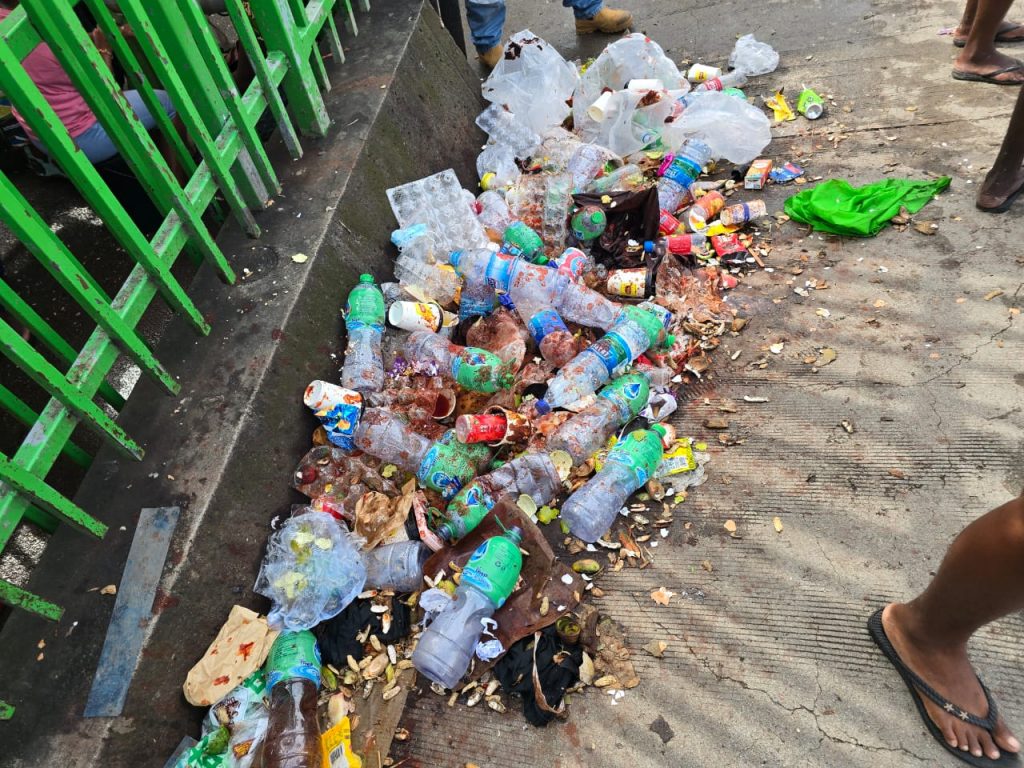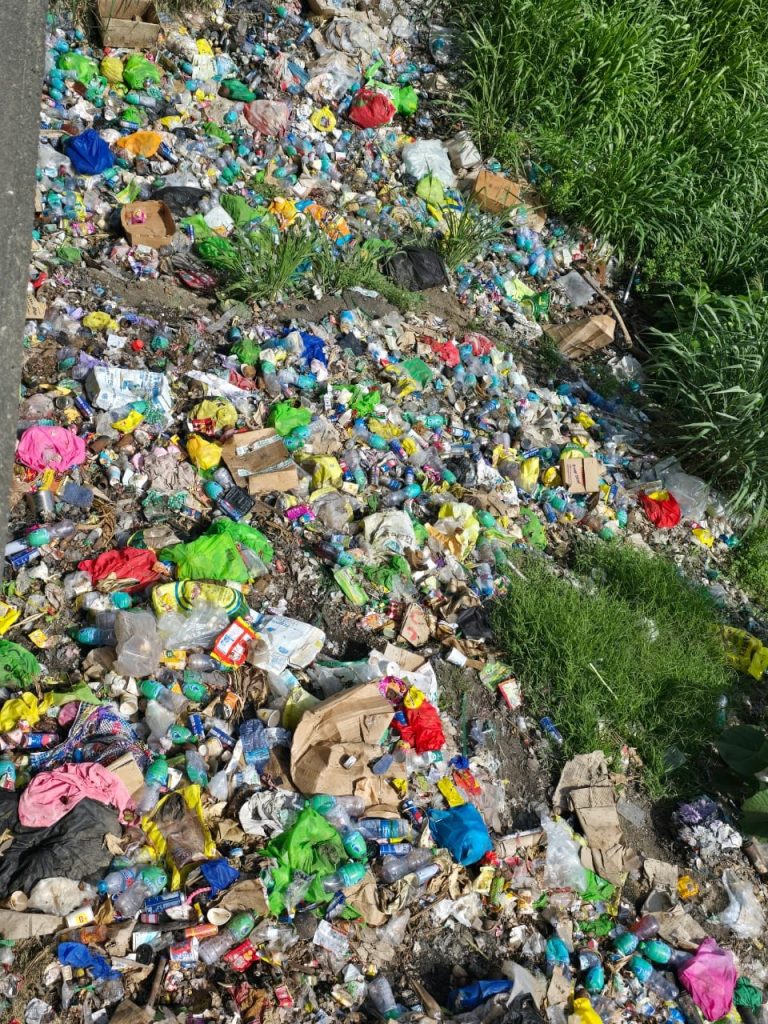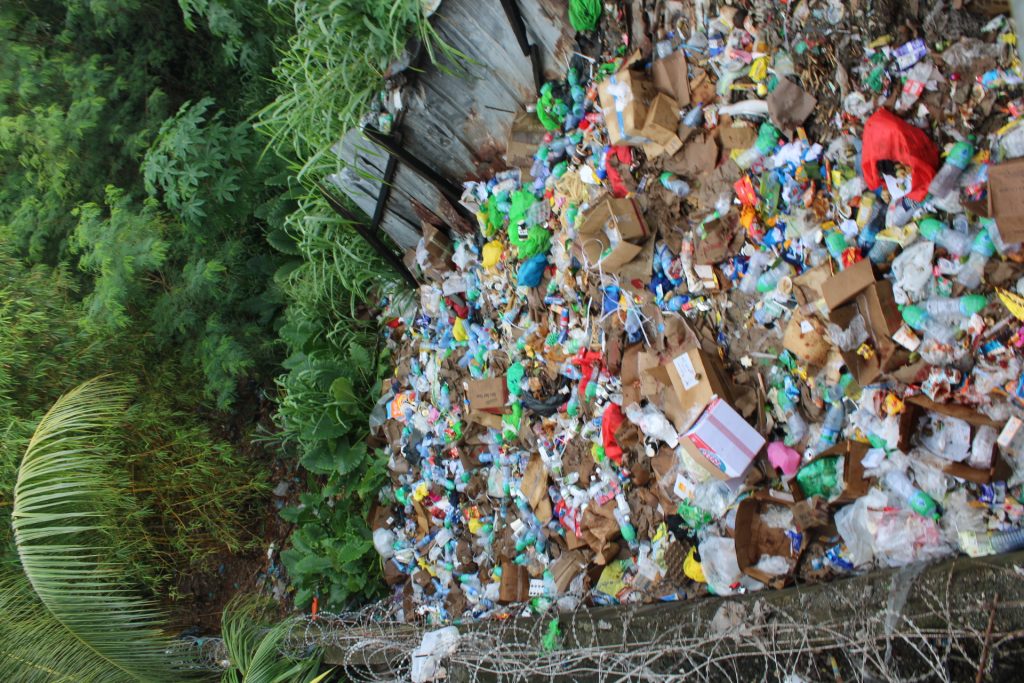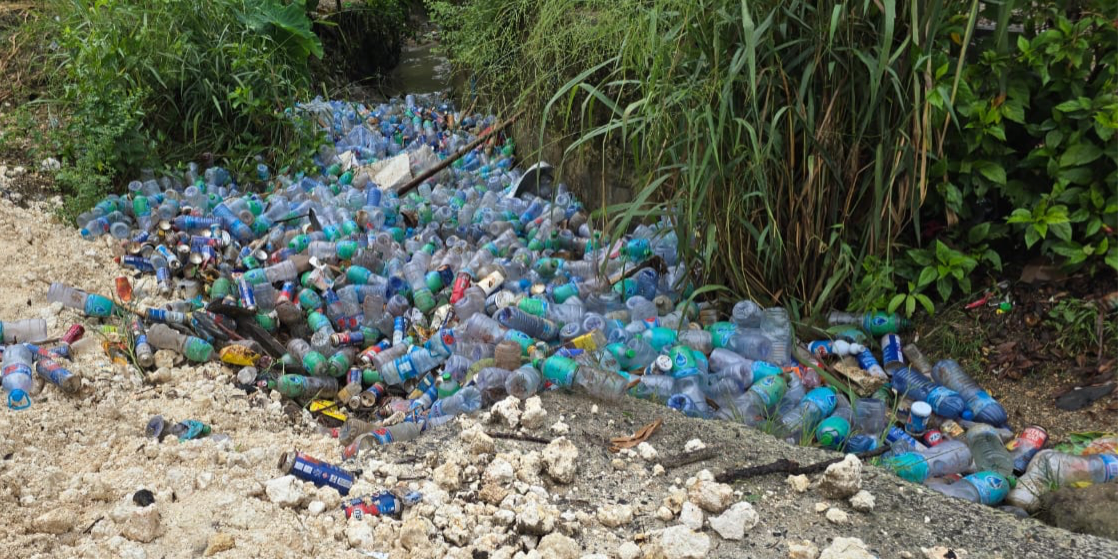HEAVY showers over the past days in the country had exposed the extent of the plastic waste that residents and communities of Honiara have generated.
Since last week, continuous rain brought about by a low pressure system west of the country had seen most of the plastic wastes especially plastic bottles being washed down through rivers and streams which ended up into the ocean.
As observed by the Solomon Star most of the creeks, streams and rivers have been littered and packed with plastic bottles and other solid wastes.
A young high school student Madina Samanose expressed sadness over the high presence of plastic bottles that dumped into the environment.
She said, wastes from plastic bottles, food packages, diapers and others solid materials is an eyesore in Honiara.
According to the Ministry of Environment the city generates a large amount of waste, with a significant portion being plastic, including shopping bags and PET bottles.
And most of these plastic wastes ends up in the city’s landfill, rivers, and ultimately the ocean, causing various environmental and health issues.
The Solomon Star had taken a walk through the residential areas and parts of the city in the past days and had witnessed how plastics bottles to continue make up the largest portion of wastes that are generated each in Honiara.
Its a sad sight showing evidence that plastic pollution is a huge problem in the city.
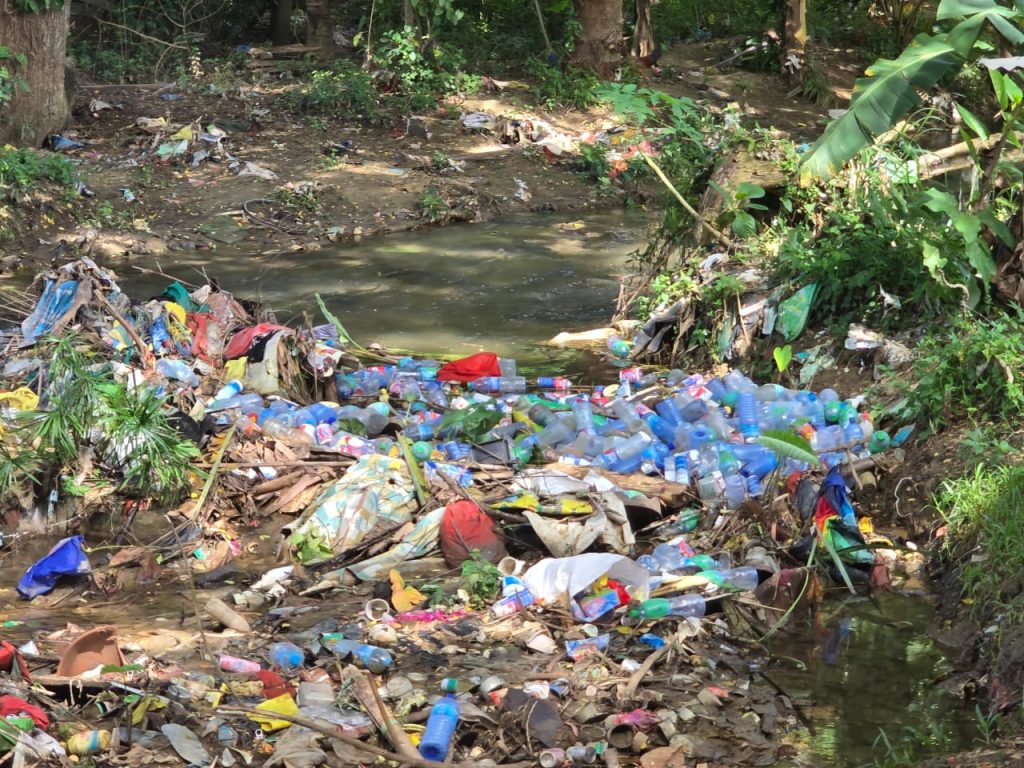
Marinda Valley, a Communications Specialist based in Honiara at the UNDP Solomon Islands Office many years ago said, when glad wraps, foil and plastics were not introduced the locals people depend on baked food wrapped in banana leaves.
“Vegetables carted in cane baskets. Locally weaved string bags.
“Natural materials used to be the standard in Solomon Islands.
“Then came these imported products took their place.
“Now it’s everywhere in the capital of Honiara — roadsides, markets, drains, the sea. It’s inundating the city.
“Plastic waste is littered, dumped, burned and largely ignored.”
She highlighted that as Honiara’s population of about 88,000 grows, the city’s waste continue to stress infrastructure and the environment to new extremes.
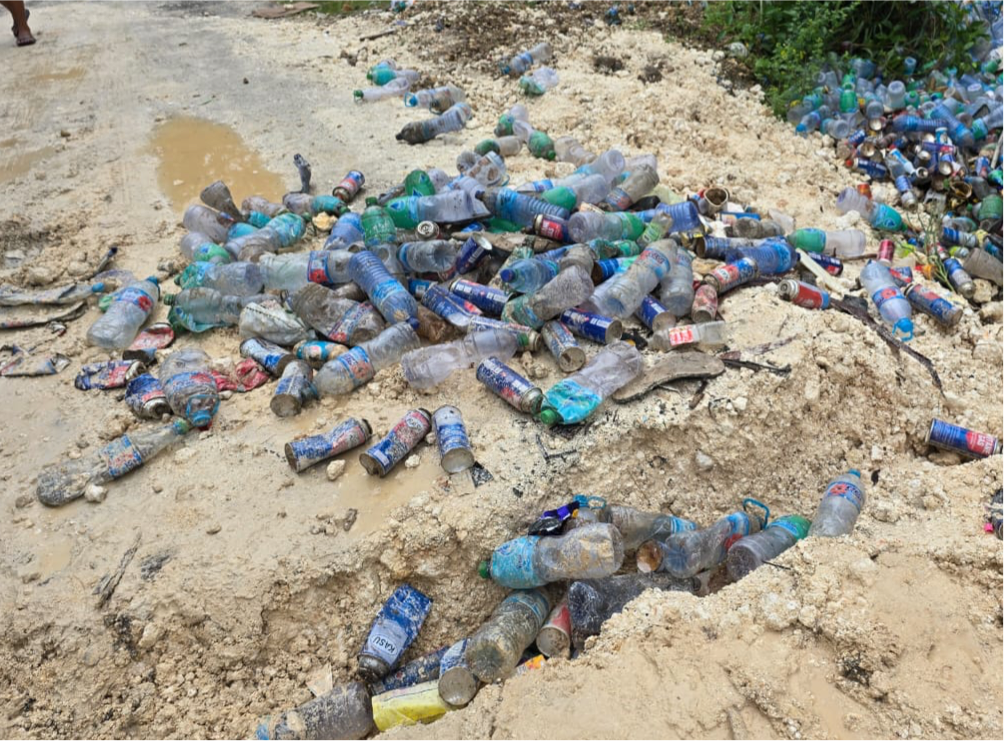
As observed over the years, managing solid waste, and particularly plastic, is a pressing issue for both the Honiara City Council and the national government.
According to the Deputy Director of Environment, Debra Kereseka, plastic bags make up 12% of the contents of Honiara’s main landfill, the Ranadi dumpsite.
“Managing plastic waste continues to stress infrastructure and already limited resources in the small island nation.
“The Pacific Islands do not produce polymers and like most small island states we face serious challenges in managing plastic waste in a safe, economically and environmentally sustainable way,” Kereseka said.
According to a study done by the Ministry of Environment, Conservation, Disaster Management (MECDM), South Pacific Regional Environment Programme (SPREP) and Asian Development Bank (ADB) several years ago, as of 2014, 2015, 2017 and 2019, Solomon Islands have waste made up of plastics.
An estimated daily plastic generation of 63.2 tons is produced in the country and about 55.8tons are mismanaged on a daily basis and of the 63.2tons, 7 tons may comprise of PET (polyethylene terephthalate) or HDPE (high-density polyethylene) plastic eligible for recycling under CDS.
The country produces an estimated 19,491 tons of plastic wastes per year and 20,394 tons are estimated to have entered waterways and ocean in 2010 and is expected to rise to 176,589 tons by 2025, it was highlighted.
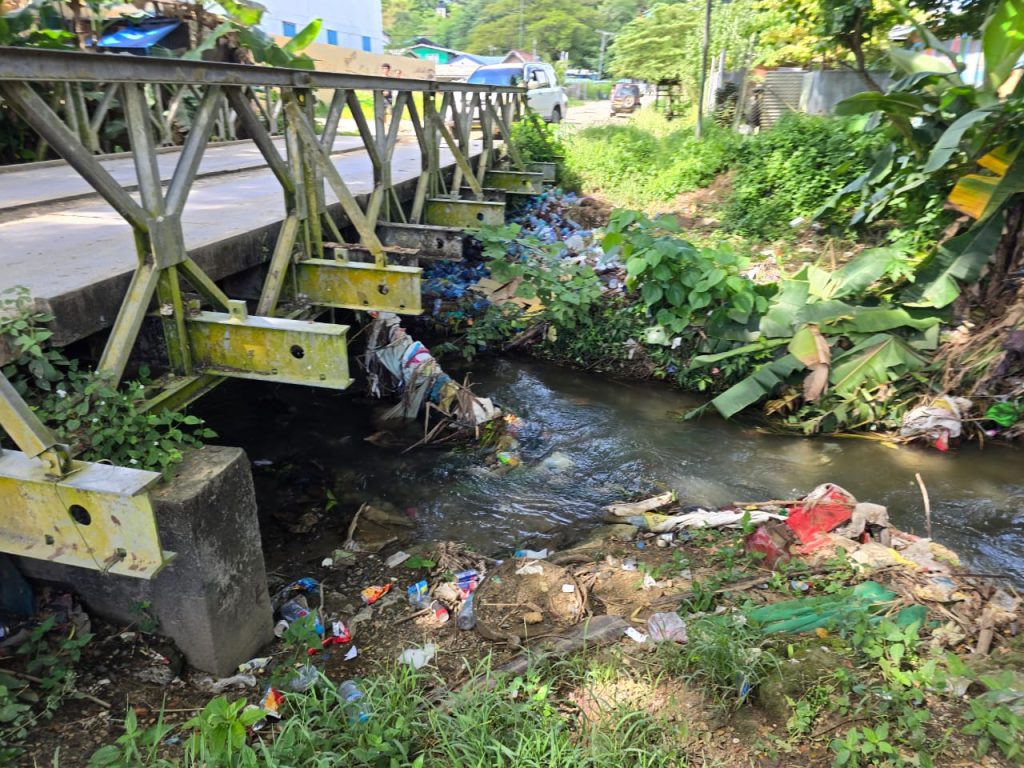
Now the evidence is here as more plastic wastes in Honiara are generated daily, dumped daily in an unmanaged manner and its now every where.
With poor waste management infrastructure and limited recycling facilities, all that plastic waste ends up in rivers and eventually flows into the sea.
Thus, the war and struggle against controlling plastic wastes continues.
Solomon Islands National University (SINU) Vice Chancellor Dr. Transform Aqorau was concerned.
He told Island Business in 2023 that plastic pollution in Solomon Islands is reaching pandemic levels.
“Marine animals, such as sea turtles, whales, and seabirds, often mistake plastic debris for food, leading to blockages, malnutrition, and even starvation.
“Additionally, animals can get entangled in plastic debris like fishing nets, six-pack rings, and plastic bags, which can impede their movement, lead to injury, or cause death.”
Dr Aqorau added: “The presence of plastics can harm both the fishing and tourism industries, with littered beaches being less appealing to tourists and fishing equipment being damaged by plastic debris.
“Floating plastics can also alter physical processes in the marine environment, such as light penetration and gas exchange.”
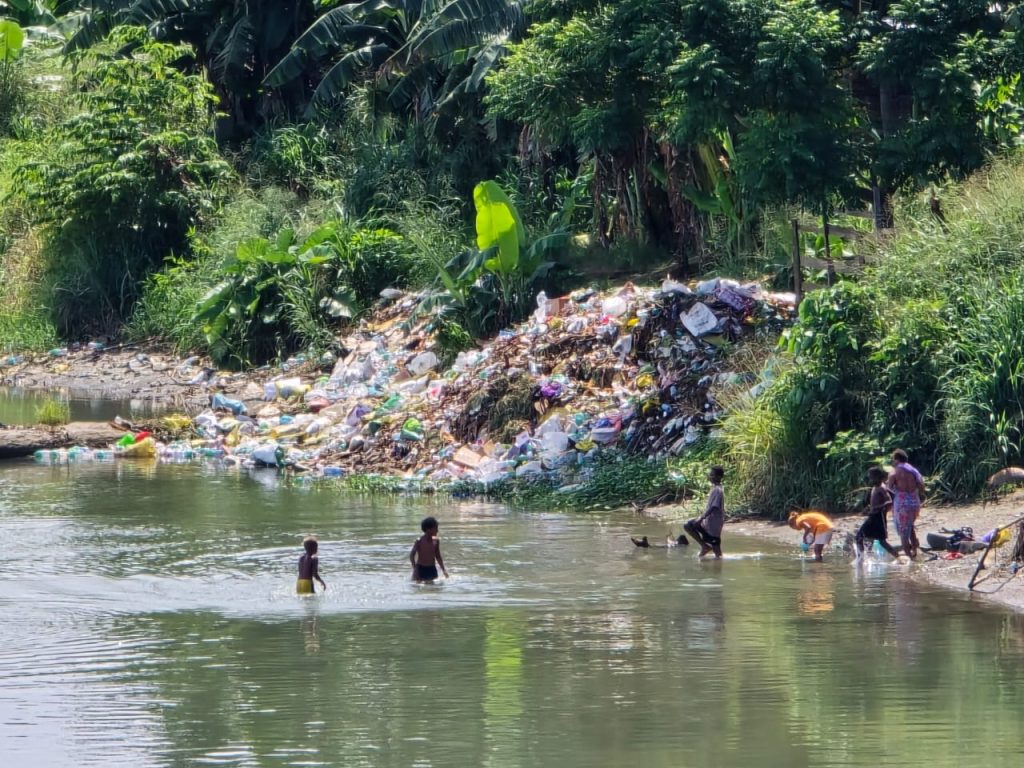
In Honiara, the unmanaged dumping of plastic bottles is always evident during heavy rain when all the wastes came running down the stream and into the ocean.
Its a sad situation. Over the weekend, thats the scenario in Honiara.
Sefanaia Nawadra Director General SPREP during the World Earth Day, Tuesday 22nd April said, while the Pacific contributes less than 1.3% of global plastic pollution, Pacific ocean is inundated with the bulk of the world’s transboundary washed-away plastics, which has serious negative environmental, health, cultural and socio-economic consequences for the people.
“But we do what we can to stop this, every action counts from developing legislation and policy, teaching and raising awareness to changing behaviour, to collecting waste and to bringing to task those who pollute.
“Across our region we have worked to clean our coasts. Between 2019 and 2024, SPREP, supported 73 beach marine litter surveys and waste audits across 43 locations in Fiji, Samoa, the Solomon Islands, Tonga, Vanuatu and Wallis and Futuna.
“A total of 76,869 items were collected, weighing 4,492 kg. Plastics accounted for 58% of the collected waste (44,653 items).
“And we have helped our communities address all types of waste challenges they face through real, practical solutions,” he said.
He highlighted there needs to be a transformational change in the way wastes especially plastics are being managed.
Awareness about how to manage our plastic wastes must start at home, schools, churches and into the communities.
If we are not careful, our once lively environment will get choked by these hazardous materials.
As a nation, Solomon Islands must act now.
By MOFFAT MAMU
SOLOMON STAR, HONIARA
